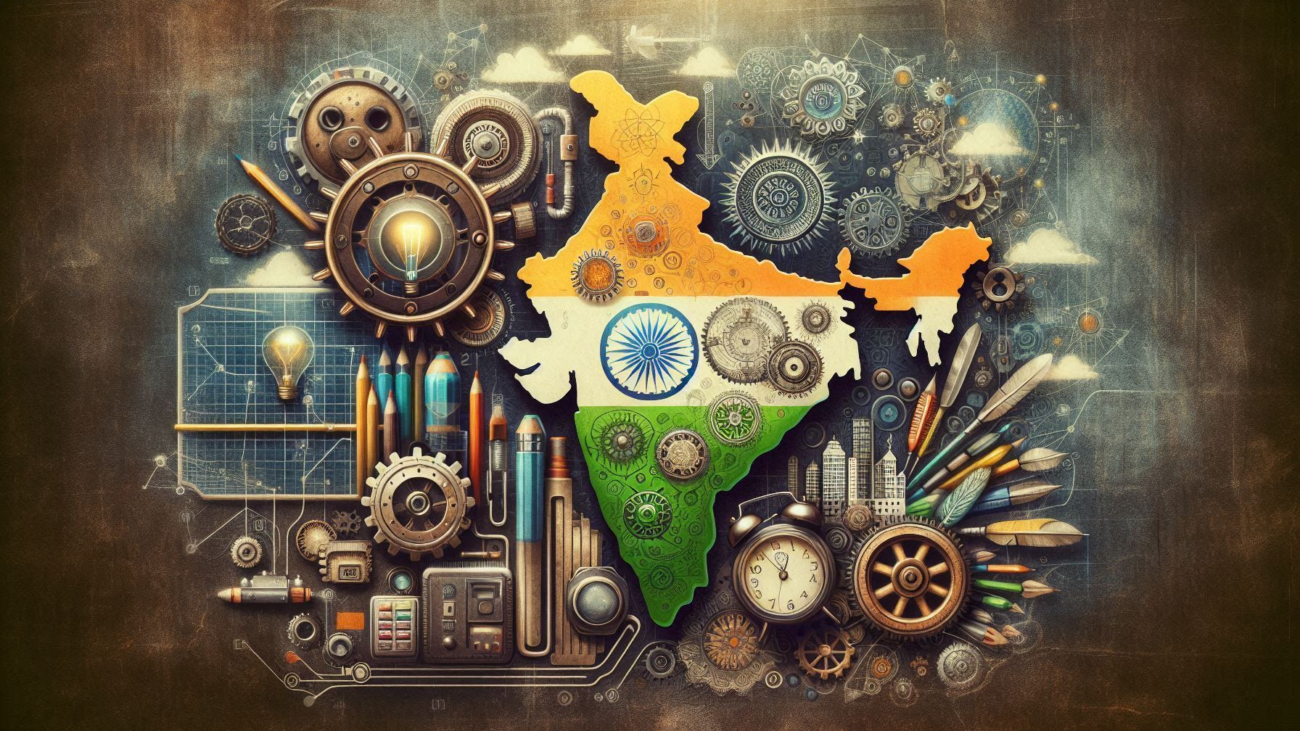India stands at the threshold of a technological renaissance, fueled by its burgeoning young population, dynamic entrepreneurial ecosystem, and a growing emphasis on innovation. The 21st century presents India with a unique opportunity to leverage cutting-edge technologies and innovative ideas to propel itself to the forefront of the global economy. This article explores the scope of innovation in India with a focus on 21st-century technology, ideas, and principles, highlighting key areas such as artificial intelligence (AI), blockchain, renewable energy, biotechnology, and smart cities.
The Landscape of Innovation in India
India’s innovation landscape is characterized by a vibrant ecosystem of startups, research institutions, and government initiatives. Programs and policies aimed at fostering innovation across various sectors have laid the groundwork for significant advancements.
Key Drivers of Innovation:
- Demographic Dividend: With a significant proportion of its population under the age of 35, India has a vast pool of young, tech-savvy individuals who are driving innovation.
- Government Support: Policies and initiatives aimed at promoting entrepreneurship, research and development (R&D), and digital transformation are bolstering innovation.
- Global Connectivity: Increased globalization and access to international markets and technologies are enabling Indian innovators to collaborate and compete on a global scale.
Artificial Intelligence (AI) and Machine Learning (ML)
AI and ML are at the forefront of technological innovation in India, with applications spanning various sectors including healthcare, agriculture, finance, and manufacturing.
Healthcare: AI is revolutionizing healthcare by enabling predictive analytics, personalized medicine, and efficient diagnostics. AI-driven solutions are improving early disease detection and treatment outcomes.
Agriculture: AI-powered solutions are helping farmers optimize crop yields and manage resources more efficiently. Advanced analytics are providing real-time data on weather conditions, soil health, and crop performance.
Finance: AI is enhancing financial services through fraud detection, credit scoring, and personalized financial advice. AI-driven systems are improving financial inclusion and risk management.
Manufacturing: AI-driven automation is improving productivity and quality control in manufacturing. AI technologies are streamlining operations and reducing production costs.
Blockchain Technology
Blockchain technology is emerging as a transformative force in various industries, offering enhanced security, transparency, and efficiency.
Supply Chain Management: Blockchain can streamline supply chains by providing end-to-end visibility and traceability, ensuring the integrity of goods and transactions.
Finance: Blockchain is revolutionizing financial services through decentralized finance (DeFi) platforms, enabling secure and transparent transactions.
Healthcare: Blockchain can secure patient data and streamline health information exchange, ensuring data integrity and privacy.
Government Services: Blockchain can enhance the efficiency and transparency of government services such as land registry and public procurement.
Renewable Energy
Innovation in renewable energy is crucial for India’s sustainable development and energy security.
Solar Power: Advancements in solar panel efficiency and energy storage are driving the solar energy sector forward, contributing to a cleaner energy mix.
Wind Energy: Improvements in wind turbine technology and offshore wind farms are expanding India’s wind energy capacity.
Energy Storage: Efficient energy storage solutions are key to integrating renewable energy into the grid, ensuring a stable power supply.
Smart Grids: Smart grid technology is enhancing the efficiency and reliability of electricity distribution, accommodating the growing share of renewable energy.
Biotechnology
Biotechnology is playing a pivotal role in healthcare, agriculture, and environmental sustainability.
Healthcare: Biotechnology is enabling the development of advanced diagnostics, therapeutics, and vaccines, improving healthcare outcomes.
Agriculture: Biotechnology is enhancing crop resilience and productivity through genetic engineering and bio-fertilizers, supporting sustainable agriculture.
Environmental Sustainability: Biotechnology is offering solutions for waste management and pollution control, contributing to a cleaner environment.
Smart Cities
The Smart Cities Mission aims to develop 100 smart cities across India, leveraging technology to enhance urban living.
IoT and Sensors: IoT devices and sensors are being deployed to monitor and manage urban infrastructure, including water supply, waste management, and traffic control.
Urban Mobility: Innovations in urban mobility, such as electric vehicles (EVs) and smart public transport, are reducing congestion and pollution.
E-Governance: Digital platforms are streamlining government services, making them more accessible and efficient.
Green Infrastructure: Sustainable urban planning and green infrastructure are enhancing the quality of life in cities.
Principles Guiding Innovation
Sustainability: Innovation must prioritize environmental sustainability, ensuring that technological advancements do not come at the cost of ecological balance.
Inclusivity: Ensuring that the benefits of innovation reach all sections of society is crucial. Policies must address the digital divide and promote equitable access to technology.
Ethics: Ethical considerations must guide the development and deployment of new technologies. This includes ensuring data privacy, preventing bias in AI algorithms, and addressing the potential impact of automation on jobs.
Collaboration: Innovation thrives on collaboration between academia, industry, government, and international partners. Fostering a collaborative ecosystem can accelerate the pace of innovation.
Conclusion
India’s journey towards becoming a global innovation hub is well underway. By leveraging 21st-century technologies such as AI, blockchain, renewable energy, and biotechnology, India can address critical challenges and drive sustainable growth. The principles of sustainability, inclusivity, ethics, and collaboration must guide this innovation journey, ensuring that technological advancements benefit all sections of society. With strategic investments, supportive policies, and a focus on fostering a vibrant innovation ecosystem, India can realize its vision of a prosperous and technologically advanced future.

